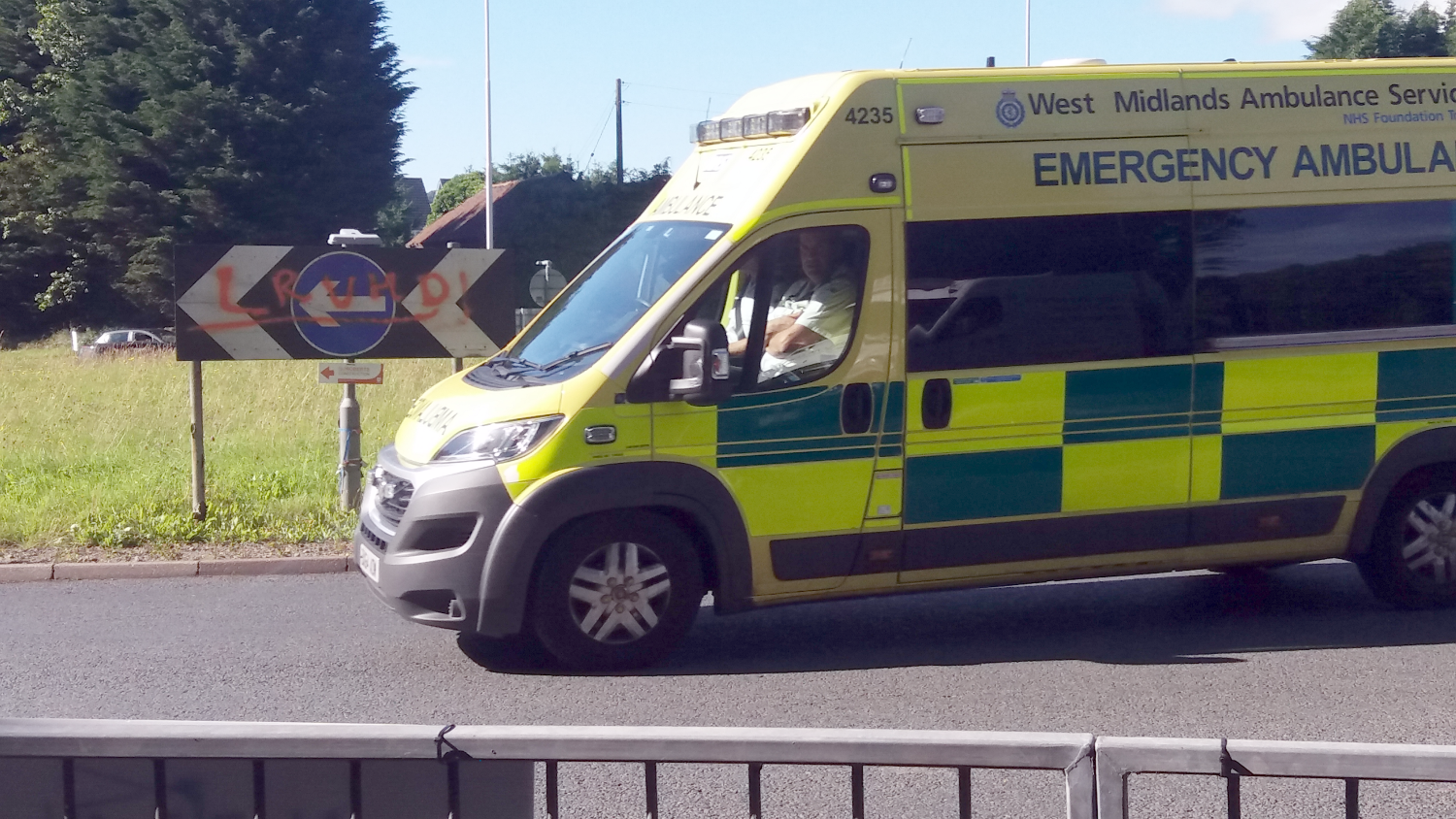Ambulance performance in Shropshire, and in many areas of the country, has been unacceptable for too long. Ludlow health campaigner and town councillor Darren Childs has recently detailed his second experience of not being able to get a 999 ambulance promptly when needed. Susan told her story to me after being classified as a Category 1 emergency in South Shropshire a few days ago.
BBC Shropshire reported earlier this week that in 2020 one person died because of ambulance delays in the county. This does not include deaths before the ambulance arrived. In 2021, the number of deaths rose to 22. In first nine months this year, there have been 37 deaths.
A new system was introduced at the Royal Shrewsbury Hospital (RSH) two weeks ago. Patients arriving by ambulance are transferred to Ambulance Decision Area for continued assessment and treatment before being admitted to A&E and the hospital. If it is successful, it will mean that ambulances will be able to get back on the road more quickly. It will a few weeks before we can see the impact of this.
There has, though, been a 19% drop in the proportion of ambulances arriving at the county’s two hospitals in the last three weeks that have to wait for 30 minutes or more before discharging their patients.
The number of ambulances arriving at the two hospitals has also fallen by 15% over the same period, easing pressure on the A&Es.
I’ll update on this as more information becomes available.
Locally, Shrewsbury and Telford NHS Hospital Trust has been ranked fourth from bottom among NHS hospital trusts in England. The Telegraph has a more detailed breakdown of hospital trust performance (£).
A Winter Control Room has been set up to troubleshoot problems across the health services in Shropshire as they occur.
Many people think that instead of being the National Health Service, the NHS is becoming the National Wait Service. Waiting for prescriptions, waiting for GP and hospital appointments, waiting for operations and treatment, waiting for ambulances, waiting to be admitted into A&E, waiting for a bed in hospital, waiting for the care package to allow discharge from hospital. We have a health care system where waiting is the operative word.
Waiting for discharge home, into care or a community hospital is a major cause of high bed occupancy. At SaTH, the number patients fit for discharge into one of these settings fell from 281 to 237 over the three weeks to 4 December. Of these, the number of patients who been fit for discharge for 21 days or more dropped slightly from 61 to 55.
While patients are waiting, the highly professional and well trained staff in our pharmacies, GP practices, ambulance crews, hospitals and care services are under great stress.
Many health professionals are thinking of leaving the service. One survey suggested that half of GPs intend to retire at the age of 60 or earlier. After Brexit, the NHS is not attracting as many European health professionals as previously predicted, including specialists in anaesthesia, children, psychiatry, and heart and lung treatment. A report by the Nuffield Trust suggests a shortfall of 4,000 specialists in the NHS since the EU referendum. Difficulties with visas, low pay and stressful working conditions also increase the problems of recruitment, along with systemic underfunding of public health services.
Yet demands are growing as the population ages and a greater range of treatments for conditions which would have been difficult or impossible to treat decades ago become available. A recent analysis by the BMA reveals the waiting list for consultant-led elective care in the NHS in England stood at 4.43 million people before the pandemic. That grew to 7.1 million in September this year.
There are plans for strikes by nurses and paramedics this winter as hard pressed health staff resort to food banks to survive and struggle to pay rents and mortgages. The strikes come as Professor Julian Redhead, National Clinical Director for Urgent and Emergency Care for NHS England said the NHS is currently coping but faces a perfect storm of pressures this winter.
I have heard strong support for the strikes locally, though nurses will not be on strike in Shropshire’s hospitals. Everyone is doing their best to avoid a bleak mid-winter, except perhaps some politicians who seem to be spoiling for a fight rather than resolving the problems they were elected to tackle.
A report to the Health and Adult Social Care Overview and Scrutiny Committee tomorrow (Monday) calls for a systemwide approach by the NHS, councils and care providers if Shropshire is to begin to tackle the issues of delays.



